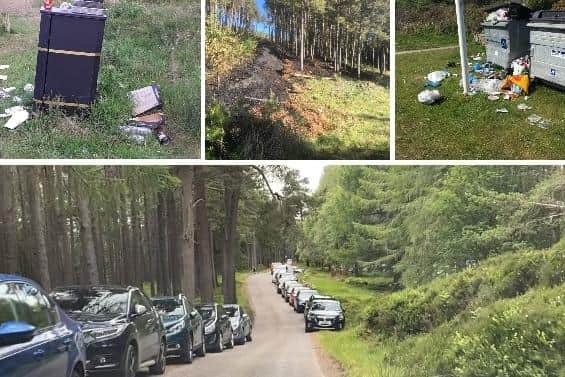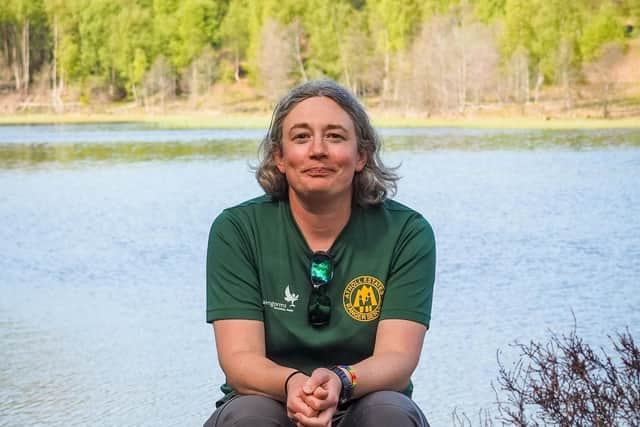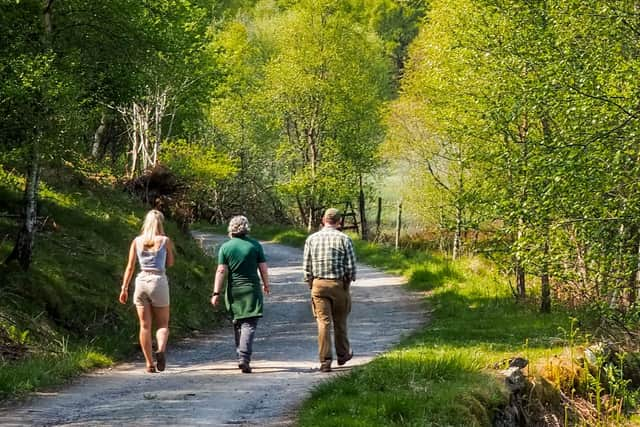Calls for countryside rangers as Scottish beauty spots risk permanent harm from irresponsible visitors
The plea comes as the country’s scenic landscapes come under new pressure from an increase in people staycationing and seeking to connect with nature as a result of the coronavirus crisis.
The ability to help care for some of the best-loved areas and protect natural assets has been hampered after major cuts to countryside ranger jobs in the past few years.
Advertisement
Hide AdAdvertisement
Hide AdFunding cuts at local authorities and national parks have resulted in around 35 per cent of such positions being scrapped in the past few years.


Now, with a huge upturn in Scots holidaying at home and more people trying experiences like camping or hill-walking for the first time, workers in the sector insist greater investment is urgently needed to avoid permanent damage to Scotland’s natural environment.
They say extra posts must be created and young people encouraged to join the profession.
A recruitment drive for summer positions has been described as merely “a sticking plaster” for the problem.
George Potts, chair of the Scottish Countryside Rangers Association, said: “Scotland’s national network of countryside rangers and allied professionals are uniquely placed to help address the challenges posed by the environmental and social changes sweeping the countryside and impacting on our wildlife.


“However, this sector faces major challenges, having lost over 140 posts in recent years due to funding cuts, meaning we are struggling to maintain a semblance of a national network and service.
“This is significant at a time when many more people are choosing to holiday at home, putting huge pressures onto popular places across Scotland.
“While around 70 posts have been advertised over the summer, the vast majority are only seasonal – a sticking plaster masking a long-term problem that must be addressed now.


Advertisement
Hide AdAdvertisement
Hide Ad“We welcome the upsurge in interest in our beautiful country but that has to be managed by rangers on the ground.”
Julia Duncan, a ranger for Blair Castle and Atholl Estates in Highland Perthshire, has seen her role expanded to meet the demands of more people wanting to understand and learn about nature.
This ranges from working with schools through to guided walks across the estate and development of a new beaver tour.
“We’ve certainly seen – and appreciate – the sudden increasing interest in the countryside and the wildlife around us,” she said.
“Our estate is beautiful and I see my role as a ranger is to speak to people about how they can build a connection with nature, not just now but also for the future.
“The sustainability of the natural environment and the protection of wildlife is everyone’s concern. We all have a role to play.
“The pandemic is allowing us to engage more as interest in the countryside grows, but we need countryside rangers to guide and educate that growing number of visitors, otherwise all that will happen is damage to natural Scotland.”
A message from the Editor:
Thank you for reading this article. We’re more reliant on your support than ever as the shift in consumer habits brought about by coronavirus impacts our advertisers.
If you haven’t already, please consider supporting our trusted, fact-checked journalism by taking out a digital subscription.
Comments
Want to join the conversation? Please or to comment on this article.
